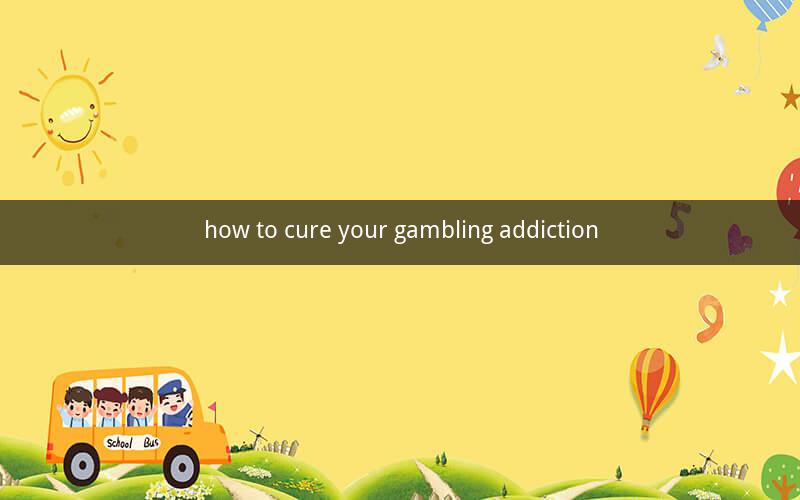
Contents
1. Understanding Gambling Addiction
2. Recognizing the Signs
3. The Impact of Gambling Addiction
4. Seeking Professional Help
5. Self-Reflection and Self-Discovery
6. Building a Support System
7. Alternative Activities and Hobbies
8. Managing Financial Implications
9. Legal and Ethical Considerations
10. The Path to Recovery
1. Understanding Gambling Addiction
Gambling addiction, often referred to as compulsive gambling or problem gambling, is a behavioral addiction characterized by an individual's inability to control their urge to gamble despite negative consequences. It is essential to recognize that gambling addiction is a real disorder that can affect anyone, regardless of age, gender, or socioeconomic status.
2. Recognizing the Signs
Identifying the signs of gambling addiction is the first step towards recovery. Common signs include:
- Preoccupation with gambling, which can lead to neglecting other responsibilities and interests.
- Needing to gamble more money to achieve the same thrill or excitement.
- Feeling restless or irritable when attempting to stop gambling.
- Repeatedly returning to try to win back money that has been lost.
- Lying to family, friends, or therapists about the extent of the gambling problem.
3. The Impact of Gambling Addiction
Gambling addiction can have severe consequences, impacting various aspects of an individual's life:
- Financial: Excessive gambling can lead to significant debt, bankruptcy, and the loss of savings.
- Emotional: It can cause anxiety, depression, and relationship problems.
- Social: Isolation and strained relationships with loved ones are common.
- Professional: Work performance may suffer due to the time and money spent on gambling.
4. Seeking Professional Help
Professional help is crucial for overcoming gambling addiction. Therapists and counselors can provide:
- Cognitive-behavioral therapy (CBT) to help change negative thought patterns.
- Family therapy to address the impact of the addiction on relationships.
- Support groups, such as Gamblers Anonymous, to connect with others experiencing similar challenges.
5. Self-Reflection and Self-Discovery
Self-reflection is an essential part of the recovery process. Individuals should:
- Identify the triggers that lead to gambling.
- Explore the underlying reasons for their addiction, such as escape from reality or the need for excitement.
- Develop a better understanding of themselves and their emotions.
6. Building a Support System
A strong support system can make the recovery process easier. This includes:
- Friends and family who are willing to support the individual's journey.
- Support groups and community resources.
- A therapist or counselor who can provide guidance and encouragement.
7. Alternative Activities and Hobbies
Finding healthy alternatives to gambling can help in overcoming the addiction:
- Exercise: Physical activity can improve mood and reduce stress.
- Hobbies: Engaging in hobbies such as painting, gardening, or cooking can provide a sense of accomplishment.
- Volunteering: Helping others can provide a sense of purpose and fulfillment.
8. Managing Financial Implications
Dealing with the financial consequences of gambling addiction is a critical aspect of recovery:
- Creating a budget to manage expenses.
- Seeking financial counseling to address debt and improve financial management skills.
- Developing a plan to rebuild savings and investments.
9. Legal and Ethical Considerations
Understanding the legal and ethical implications of gambling addiction is important:
- Researching the laws and regulations surrounding gambling in your area.
- Seeking legal advice if facing legal consequences due to gambling.
- Making ethical decisions regarding the use of gambling as a form of entertainment.
10. The Path to Recovery
The path to recovery from gambling addiction is unique for each individual. It involves:
- Recognizing the addiction and committing to change.
- Seeking professional help and building a support system.
- Engaging in self-reflection and exploring alternative activities.
- Managing financial implications and understanding legal and ethical considerations.
- Maintaining a focus on long-term recovery and personal growth.
Questions and Answers
1. What is the difference between gambling and problem gambling?
- Gambling is the act of playing games of chance for money or other valuable items, while problem gambling is characterized by the inability to control the urge to gamble, despite negative consequences.
2. How can I tell if I have a gambling problem?
- Signs of a gambling problem include preoccupation with gambling, needing to gamble more to achieve the same thrill, and lying about gambling activities.
3. Is it possible to overcome a gambling addiction on my own?
- While it is possible to take initial steps on your own, seeking professional help and joining support groups can significantly increase the chances of successful recovery.
4. What types of therapy are effective for gambling addiction?
- Cognitive-behavioral therapy (CBT) and family therapy are among the most effective treatments for gambling addiction.
5. How can I build a support system for my gambling addiction?
- Reach out to friends and family, join support groups, and consider a therapist or counselor who specializes in gambling addiction.
6. Are there any medications that can help with gambling addiction?
- While there are no medications specifically designed for gambling addiction, certain medications may be prescribed to manage co-occurring mental health conditions.
7. What can I do to manage my financial problems caused by gambling?
- Create a budget, seek financial counseling, and develop a plan to rebuild your finances.
8. How can I prevent a relapse into gambling addiction?
- Identify triggers, develop healthy coping mechanisms, and stay connected with your support system.
9. Is it common for gambling addiction to occur alongside other addictions?
- Yes, it is not uncommon for individuals with gambling addiction to also struggle with other forms of addiction, such as alcohol or drug abuse.
10. What is the long-term outlook for someone recovering from gambling addiction?
- With proper treatment and support, many individuals can achieve long-term recovery from gambling addiction and lead fulfilling lives.